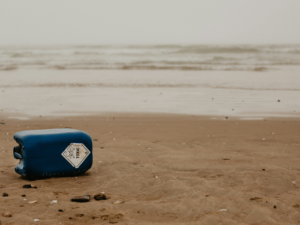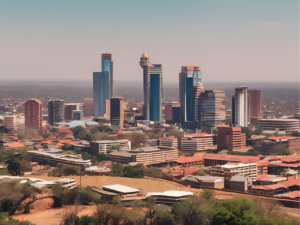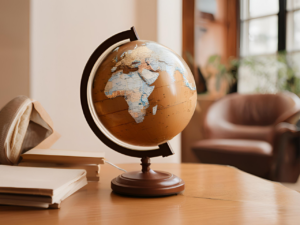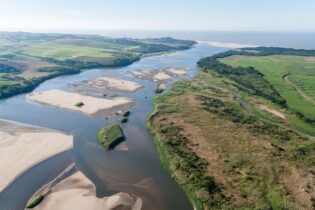Good morning, ladies and gentlemen. Thanks for joining us. Our last media briefing was on the 4th of August during which we outlined our plans and priorities for the year. We meet again today as we reflect on our performance during the first hundred days of the Ministry of Water and Sanitation under the seventh administration.
Our report covers the period from 3 July 2024 to 11 October 2024. The thrust of our report is continuity – building on the solid foundation laid by the 6th administration while accelerating the pace and tempo of delivery. The department is currently undertaking water sector reforms, which are aligned to Operation Vulindlela programme, led by the President. Operation Vulindlela aims to modernise and transform network industries. With regard to the water sector, its focus includes the following:- The President signed the National Water Resource Infrastructure Agency (NWRIA) Act into law which provides for the establishment of the National Water Resource Infrastructure Agency (NWRIA) through the amalgamation of the Trans Caledon Tunnel Authority (TCTA), the Water Trading Entity and the Infrastructure branch of the department. The functions of the NWRIA will include the financing, development, operations and maintenance of the national water resource infrastructure and the treaty and non-treaty functions performed by the TCTA. Processes are now underway to manage the establishment of the Agency.
- The establishment of the remaining Catchment Management Agencies as required by the National Water Act, to enable improved catchment management with local stakeholder involvement. This will also contribute to water security while ensuring the equitable and sustainable allocation of water-use rights; The fifth out of six catchment agencies was gazetted and the board was appointed. The recruitment process for the final sixth catchment management agency was completed and the board will be appointed shortly.
- Improving turn-around times for the issuing of water use licenses: With regard to meeting the President’s target of processing water-use license applications within 90 days, for the quarter which ended in September 2024, the department processed 73% of license applications within 90 days. This is a significant improvement from 62% processed within 90 days on average during the 2022/23 financial year. The Department is currently training the 120 additional technical staff which it recently hired to process water-use license applications and is carrying out further enhancements to the e-WULAAS electronic license application and authorisation system.
- Reform of municipal water and sanitation services: Through amendments to the Water Services Act, the department seeks to address the underlying structural causes of the widespread deterioration of municipal water services. These amendments will strengthen the Department’s ability to effectively regulate municipal water services. They will also require municipal Water Service Providers to meet minimum capability requirements. Public comments received during the public consultation process on the draft Amendment Bill were processed during the 100 days and a revised draft Amendment Bill has been submitted to the Office of the Chief State Law Advisor for certification before the Bill is presented to Cabinet for approval.
Trans Caledon Tunnel Authority (TCTA) projects
During the 100 days, the department and its entity the Trans Caledon Tunnel Authority (TCTA), continued with the implementation of fourteen major national water infrastructure projects (at a cost of approximately R100 billion) aimed at securing raw water security. The projects include:- R42 billion second phase of the Lesotho Highlands Water project to supply additional water to Gauteng.
- The R28 billion construction of a new dam and transfer tunnel on the uMkhomazi River in KwaZulu Natal to supply additional water to eThekwini and surrounding municipalities.
- The R6.5 billion raising of the wall of the Clanwilliam Dam in the Western Cape.
- The R750 million raising of the wall of the Tzaneen Dam in Limpopo.
Lesotho Highlands Water Project Tunnel
A planned maintenance operation of the Lesotho Highlands Water Project Tunnel, which entailed a total shutdown, commenced on the 1st of October 2024. The maintenance entails general inspection and repair works in order to ensure the integrity and reliability of the entire water tunnel system. It will ensure that the tunnel continues to operate effectively in the long-term, supplying water to parts of the Free State and to Gauteng. Engagements with the two provincial governments and affected municipalities of Nketoane, Mfube and Dihlabeng was done in this regard. Specific work has already taken place, which include the upgrading of water treatment works, upgrading of raw water pumps, construction of new water reservoirs and the drilling and equipping of boreholes. The department has established the War Room to oversee the implementation of the shutdown and communication as a tool to raise awareness and to educate the public about water security issues. We wish to assure all citizens in affected municipalities that there is sufficient water storage for the next six months and that they will continue to have access to water during the entire shutdown period.Sundays River Conveyance Canal
A carefully coordinated 24 hour per day maintenance project on the Sundays River conveyance canal was successfully implemented by the department on the canal over a week during July, without causing significant disruption to water supply to Nelson Mandela Bay and to the farmers. The canal shutdown was successfully undertaken to ensure the reliability and sustainability of water supply to the users. The work done included the demolishing of existing canal at the upstream and downstream and surface preparation. Launch of Anti-Pollution Forum
Launch of Anti-Pollution Forum
On the 3rd of October 2024, the Ministry launched an Anti-pollution Forum to co-ordinate efforts to improve water quality in the Vaal River System.
The Ministry carried out the oversight visits to the Springfontein farms in the Kopanong Local Municipality (Free State province) to assess the state of sewerage pollution of the rivers which was eventually affecting the agricultural activities. In the Msukaligwa Local Municipality (Mpumalanga province), the purpose of the oversight visit was to assess the impact of pollution on water resources, especially the Vaal River System.
The Middle Letaba Water Challenges
Another regulatory responsibility of the department is to ensure that water-use license conditions are adhered to. In this regard, the Ministry appointed an independent Middle Letaba Investigative Panel led by Judge Bernard Ngoepe, to investigate allegations of over-use of water by farmers in the Middle Letaba catchment area, upstream of Middle Letaba Dam. The investigation commenced in July 2024 and a final report will be submitted in due course.Dam collapse at the Swartland Municipality in Western Cape
One of the department’s responsibilities is the regulation of the safety of dams. A series of inter-linked privately-owned dams failed on a farm near the town of Riverlands in the Swartland Local Municipality, Western Cape during the 100 days, causing extensive damage to municipal infrastructure and houses in the town. The Ministry visited the site of the dam failures, met with the community, and oversaw an investigation into the failures. The preliminary investigation report found that the original owner of the farm who built the dams failed to obtain the legally required approval from the department for the design of the dams, and that subsequent owners failed to register the dams with the department as required by the National Water Act. As a result, the dams were not regularly inspected and signs of imminent failure were not identified timeously. Following the release of the investigation report, the Department issued a directive to the current owner of the dams to safely decommission the failed dams. Further investigations are underway to determine liability for the damages caused by the dam failures.Jaggersfontein Tailing Dam in Free State
During the 100 days, the Department completed its comprehensive technical investigation into the 2022 failure of the Jagersfontein Tailings Dam in the Free State, which resulted in three deaths and one person missing, as well as extensive damage to public and private property. The report has been submitted to the National Prosecuting Authority following the laying of criminal charges against the dam owners by the Department during 2022.Tourism and recreation work along the dams
During the 100 days, a Request for Expressions of Interest issued by the Department for proposals to develop tourism and recreation related to the Department’s dams was finalised and the 300 applications which were received are currently being processed. Water And Sanitation Challenges In Gauteng
Water And Sanitation Challenges In Gauteng
It is important to state that there is no drought in Gauteng. However, the province is experiencing water security challenges which include credit management issues, water losses, aging infrastructure, illegal connections, illegal mining and servitude encroachment.
The Ministry and Gauteng provincial government have intervened to address the challenges by calling on municipalities to impose water restrictions, upgrading of the water infrastructure, strict credit management systems, ensuring proactive governance and exploring alternative water sources
Hammanskraal
On 24 August the Ministry visited Hammanskraal to oversee a R750 million project being implemented by DWS through the Magalies Water Board to enable provision of clean drinking water. The project involves the construction of additional water treatment capacity at the Magalies Water Treatment Works near Hammanskraal. The Ministry also carried out a site inspection of the Rooiwal Waste Water Treatment Works to review the progress of the Municipality’s project to refurbish the works. On 16 November 2024 the DWS will launch Phase One of the project which entails the provision of additional 125 megalitres of water.Emfuleni
On 25 August 2024, the Ministry carried out an oversight visit to Emfuleni Local Municipality in Gauteng, where the Department, through Rand Water, is implementing a R7.5 billion intervention in terms of Section 63 of the Water Services Act to address sewage pollution from the municipality’s waste water treatment systems. As a result of the intervention, the number and frequency of sewage spillages into the streets and peoples’ homes has been significantly reduced. Work is continuing to completely eradicate sewage pollution in the municipality. A Special Purpose Vehicle by the Rand Water Board and the Emfuleni Local Municipality is in the process of being established. It will be launched once all the legal requirements have been fulfilled which include the approval by the National Treasury.Gauteng water imbizo
On 13 September, the Ministry and Department participated in a Provincial Water Imbizo organised by the Gauteng Provincial Government to address the water supply challenges in Gauteng. The Imbizo was attended by all the relevant stakeholders which include all 11 municipalities in the province. Agreement was reached on the causes of the water supply challenges and what needs to be done about them..Platform for a Water-secure Gauteng
The department has facilitated the establishment of the platform for a Water-secure Gauteng to improve communication regarding water supply challenges and to raise awareness of the need to use water sparingly. As part of the work of the Platform, a shared information repository and dashboard, accessible to the public, was created on the Department’s website, to communicate strategic and timeous information regarding water supply issues in the province.The Platform is currently raising funds which will be used for a major public communications and awareness campaign in the province regarding the need to use water sparingly.
Water supply and sewage pollution challenges in eThekwini
During the 100 days, the Director General of the Department co-chaired the water and sanitation workstream of the Presidential eThekwini Working Group. The Department, TCTA and Umgeni-uThukela Water Board are all playing important roles in assisting the City to address its water supply and sanitation challenges, including the construction of the R28 billion uMkhomazi Water Project on the upper uMkhomazi River by the TCTA, the construction of the Ngwadini Dam and new water treatment plant on the Lower uMkhomazi River by the Water Board, and the management of the City’s ten largest water treatment works by the Water Board. The Hazelmere Dam was upgraded by the department to meet the water needs of the growing population on the North Coast of eThekwini which raised the dam wall by 7 metres to increase the storage capacity and to augment water supply. It will increase water supply to eThekwini, iLembe and Dukuza.Water Boards
One of the first priorities of the Ministry on assuming office was to meet with all seven water boards regarding their plans, projects and challenges. A key issue emanating from these engagements was the debts owed to water boards. As at 24 June 2024, the debt owed by the municipalities to the water board was standing at R22 billion. Two water boards, namely Vaal Central and Magalies, were experiencing cash flow problems due to non-payment by municipalities and were facing bankruptcy. The Ministry is keenly aware that ensuring the financial sustainability of the water sector is of paramount importance to support economic growth and achieve reliability and sustainability of water supply. Addressing the growing debt in the water sector, therefore, became the preoccupation of the Ministry. These debts are a problem for six of the seven of the water boards, but pose a major risk to the ongoing financial viability of two of the water boards. In order to address this issue, the Ministry initiated a programme of provincial engagements with the relevant Premiers, MECs for local government, Mayors and Municipal Managers, with the aim of obtaining commitments from the non-paying municipalities to pay their bills to the water boards. During the first 100 days, engagements were held with Limpopo, Free State, Northern Cape, North West and Eastern Cape provinces. Engagements with the remaining provinces will continue. The engagements have been successful in that commitments to pay were obtained from most non-paying municipalities and payment levels have improved.Support to municipalities to improve water services
On 17 September, the Ministry launched the completion of the R260 million upgrade of the James Kleynhans Water Treatment Works in Makana Local Municipality. It involved increasing the capacity of the municipality’s Water Treatment Works by 10 megalitres per day, with the aim of reducing water supply disruptions in Makana.R1 Billion Project: Nelson Mandela Bay
The Ministry also launched the completion of the first phase of a R1 billion project to reduce non-revenue water in Nelson Mandela Bay Metropolitan Municipality. With the support of the department, the municipality secured funding for the project through the Budget Facility for Infrastructure in National Treasury and the funding is managed by the department through the Regional Bulk Infrastructure Grant. The project involves the installation of pressure-reducing valves, repair of major leaks in water pipes, and installation of water meters.Sterkspruit Water Treatment Works in Senqu Local Municipality
On 01 September, the Ministry conducted a site visit in Joe Gqabi District Municipality to assess the capacity of Sterkspruit Water Treatment Works in Senqu Local Municipality, which is dysfunctional. The Department is currently repurposing its budget to upgrade and refurbish the water treatment works in the 2024/2025 financial year. In the long-term, the department is undertaking a feasibility study for additional water treatment capacity that will cater for other villages not currently serviced by Sterkspruit Water Treatment Works. On the same date, the Ministry conducted an oversight visit to Maletswai Water Treatment Works in Water Sisulu Local Municipality. The Ministry is in the process of intervening to upgrade the water treatment plants.Giyani Water Project in Limpopo
On 6 September, the Ministry and Deputy President carried out an oversight visit of the Giyani Water Project in Limpopo. This R5.5 billion project was delayed for many years but this has now been corrected. The project consists of the construction of a bulk raw water pipeline from Nandoni Dam north of Giyani to Nsami Dam in Giyani, as well as the refurbishment and upgrading of the municipal water treatment works in Giyani. The project also includes the construction of 325 km of bulk pipelines to supply water from the Giyani Water Treatment Works to villages in Giyani. It further includes reticulation of water by Mopani District Municipality to 55 villages around Giyani, of which the first phase comprises of 24 villages. To date, reticulation to 11 of these 24 villages has been completed and these 11 villages are now receiving water in their yards. The remaining 13 of the 24 villages will be completed by December 2024. The second phase to reticulate the remaining 31 villages is being timed to coincide with the upgrading of the Giyani Water Treatment Works. It will start in April 2025, and is anticipated to be completed within two years. The Ministry has given a directive to the department to prioritise funding from the Regional Bulk Infrastructure Grant and the Water Services Infrastructure Grant for municipal projects which will address the remaining 10% of communities in the country which still do not have access to a basic level of water services.Water complaints from communities
During the 100 days the Ministry received over 250 complaints from communities across the country regarding water security issues. Most of the complaints are about water-related functions of municipalities such as pipe bursts and leakages; water tankering; disruptions in the supply of water; shortage of boreholes; water diversion by farmers; and water pollution. The Ministry and department have promptly responded to such complaints using different approaches such as involving the municipalities concerned and performing oversight functions which include physical visits and referrals to relevant authorities. We urge communities to use the following call centre number to report issues relating to water: 0800200200.International engagements
 The Ministry attended sessions on water as part of the 79’th session of the United Nations General Assembly. The focus was on mobilising funding to address the water infrastructure investment gap in Africa. South Africa has submitted applications to a Water Investment Programme facilitated by the African Union for funding for major projects. The Water Investment Programme is supported by development finance institutions such as the African Development Bank, Development Bank of Southern Africa and the World Bank.
There was also a focus on preparations for the Africa Water Infrastructure Investment Summit which will be hosted by South Africa on behalf of the AU in 2025. This is part of the G20 Leaders Meeting which will be hosted in South Africa, given that South Africa will be taking over the Presidency of the G20 group of countries in 2025.
The Ministry led a delegation of the South African water sector (Water boards, CMAs, Lesotho Highlands Commission, TCTA, WRC) to Stockholm World Water Week held in Sweden from 25 August to 29 August 2024. The purpose of the visit was to influence the global agenda on achievement of SDG 6 and position South Africa as a preferred destination for investment in water and sanitation, as well as learning from the global community in large.
During the water week, the Ministry was in Denmark to strengthen the South Africa-Danish strategic water sector collaboration programme. Danish counterparts presented the Africa’s Century Strategy for Strengthened Danish Engagement with African Countries. South Africa is the priority in the implementation of strategy. Approximately 300 million DKK (R800 Million) has been allocated to the implementation of the strategy. Areas of cooperation between South Africa and Denmark include water-use efficiency in industries, urban water management, and groundwater management.
During the 100 days, the Ministry also held bilateral engagements with her counterparts from Namibia, Zimbabwe, Lesotho and Eswatini regarding transboundary water management issues.
As the Ministry, we are satisfied that the Ministry and Department have made significant progress towards addressing the pressing challenges in the water sector during the first 100 days. However, there is still more work remains to be done and many challenges to overcome.
The Ministry and Department will continue to work with all stakeholders to address these challenges collaboratively. Water is life and sanitation is dignity, and all citizens of South Africa are called upon to treat water as a precious resource and to use it sparingly.
I thank you.
The Ministry attended sessions on water as part of the 79’th session of the United Nations General Assembly. The focus was on mobilising funding to address the water infrastructure investment gap in Africa. South Africa has submitted applications to a Water Investment Programme facilitated by the African Union for funding for major projects. The Water Investment Programme is supported by development finance institutions such as the African Development Bank, Development Bank of Southern Africa and the World Bank.
There was also a focus on preparations for the Africa Water Infrastructure Investment Summit which will be hosted by South Africa on behalf of the AU in 2025. This is part of the G20 Leaders Meeting which will be hosted in South Africa, given that South Africa will be taking over the Presidency of the G20 group of countries in 2025.
The Ministry led a delegation of the South African water sector (Water boards, CMAs, Lesotho Highlands Commission, TCTA, WRC) to Stockholm World Water Week held in Sweden from 25 August to 29 August 2024. The purpose of the visit was to influence the global agenda on achievement of SDG 6 and position South Africa as a preferred destination for investment in water and sanitation, as well as learning from the global community in large.
During the water week, the Ministry was in Denmark to strengthen the South Africa-Danish strategic water sector collaboration programme. Danish counterparts presented the Africa’s Century Strategy for Strengthened Danish Engagement with African Countries. South Africa is the priority in the implementation of strategy. Approximately 300 million DKK (R800 Million) has been allocated to the implementation of the strategy. Areas of cooperation between South Africa and Denmark include water-use efficiency in industries, urban water management, and groundwater management.
During the 100 days, the Ministry also held bilateral engagements with her counterparts from Namibia, Zimbabwe, Lesotho and Eswatini regarding transboundary water management issues.
As the Ministry, we are satisfied that the Ministry and Department have made significant progress towards addressing the pressing challenges in the water sector during the first 100 days. However, there is still more work remains to be done and many challenges to overcome.
The Ministry and Department will continue to work with all stakeholders to address these challenges collaboratively. Water is life and sanitation is dignity, and all citizens of South Africa are called upon to treat water as a precious resource and to use it sparingly.
I thank you.







